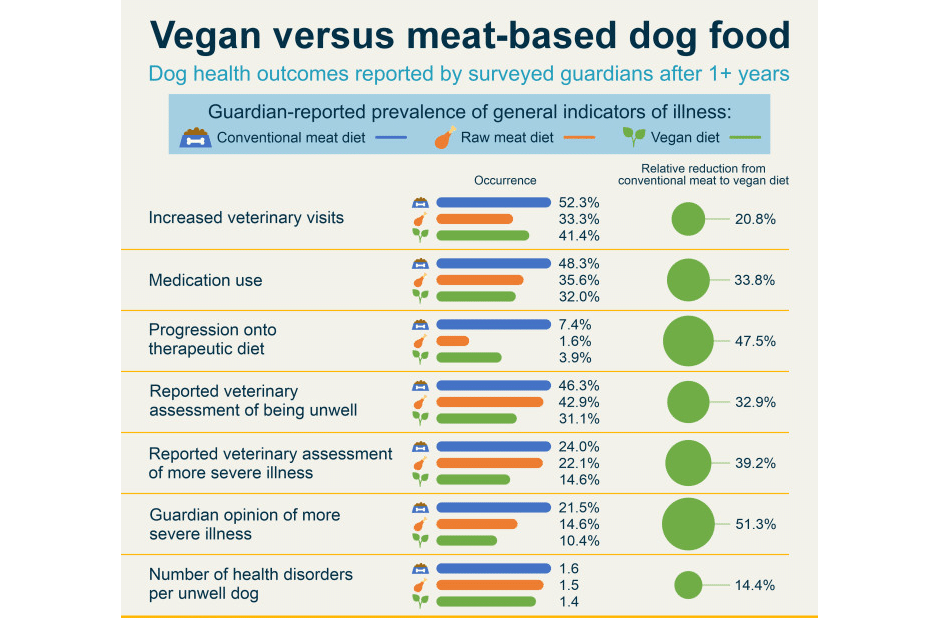A recent study reveals that vegan diets for dogs not only have significant environmental benefits but also improve canine health outcomes. With pet food accounting for at least 9% of global livestock use, and up to 20% in pet-centric nations like the US, the shift towards plant-based dog diets is gaining momentum.
Dogs, biologically omnivores, have been fed vegan diets made from plant-based, mineral, and synthetic ingredients that provide all necessary nutrients. By 2024, numerous studies confirmed that well-formulated vegan diets could sustain canine health. The British Veterinary Association also endorsed these diets, but until recently, no comprehensive study had measured the overall health benefits of vegan diets for dogs while accounting for factors like age, breed, and activity level.
In 2024, Professor Andrew Knight and his team conducted a groundbreaking study to address this gap. They analysed health outcomes in 2,536 dogs, including 336 that had been on a vegan diet for at least one year. Their findings showed that vegan-fed dogs experienced significant health improvements compared to those on traditional meat-based diets.
Dogs on vegan diets exhibited reductions in seven general health indicators. They required less medication, fewer special diets, and had fewer veterinary visits. Owners and veterinarians rated them as healthier, and they suffered from fewer illnesses and health disorders. These health benefits ranged from 14% to 51% compared to their meat-fed counterparts, with all differences being statistically significant.
The study also highlighted that vegan diets reduced the odds of six specific health disorders by 50% to 61%. These disorders included common issues such as weight problems, ear infections, and gastrointestinal issues, which often lead to conditions like lameness and diarrhoea.
Comparative data from a 2022 study showed that 49% of dogs fed conventional meat were unwell, compared to 43% on raw meat diets and 36% on vegan diets. Of the 22 common health disorders identified, half were more prevalent in dogs on conventional meat diets, eight in those on raw meat, and only three in dogs on vegan diets.
Professor Knight remarked, “Our study clearly indicates that vegan diets can lead to better health outcomes for dogs. This is consistent with previous research and underscores the large environmental benefits of plant-based diets. Pet owners seeking to improve their dogs’ health while reducing their environmental footprint should consider nutritionally-balanced vegan options. However, it’s crucial to ensure the diet is well-formulated, so checking labels and sourcing from reputable companies is essential.”
This study underscores the potential for vegan diets to offer both health and environmental advantages, making them a compelling choice for conscientious pet owners.

